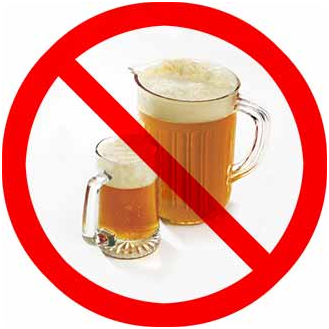
Search
Statistics
We have 222 registered usersThe newest registered user is raheelmemon
Our users have posted a total of 1140 messages in 613 subjects
If you are seeing this, you have attempted to link to the UpToDate widget but are experiencing a problem. Please visit UpToDate for more information.

Alcohol Withdrawal- Management
FORUM FOR PSYCHIATRY RESIDENTS :: Psychiatry :: Psychiatry-Neurology-Psychology discussion :: Psychiatry In Depth
Page 1 of 1
 Alcohol Withdrawal- Management
Alcohol Withdrawal- Management
Alcohol Withdrawal Management
- Dr. Harvinder Singh, MD.

- Dr. Harvinder Singh, MD.

Clinical Features:
- Result of over-activity of autonomic nervous system.
- S/S appears typically between 6 and 48 hours after heavy alcohol consumption decreases.
- Initial symptoms intensify and then diminish over 24-48 hr (1-2 days)
- Initial symptoms: Headache, tremors, sweating, agitation, anxiety, nausea, vomiting, heightened sensitivity to light & sound, disorientation, difficulty concentration and may also include transient hallucinations.
- Delirium Tremens: Occur in 5% of withdrawal patients, usually appear 2-4 days after the last use of alcohol
- Seizures: occur in 25% of withdrawal episodes, usually beginning within 24 hr after alcohol cessation.
Physical Exam: should be focused on detecting-
- Cardiovascular- Arrhythmia; CHF
- Abdomen- Alcoholic pancreatitis; Alcoholic hepatitis; bleeding within digestive system
- CNS impairment
Candidate for Outpatient Treatment:
- Mild to Moderate alcohol withdrawal symptoms.
- No medical condition or severe psychiatric disorder that could complicate withdrawal process.
- No past history of withdrawal seizures or delirium tremens.
- Sober significant other who can serve as a reliable support.
Candidate for Inpatient Treatment:
- Severe alcohol withdrawal symptoms.
- History of withdrawal seizures or delirium tremens.
- Multiple past detoxification.
- Concomitant medical or psychiatric illness.
- Recent high levels of alcohol consumption.
- Lack of reliable support network.
- Pregnancy.
Supportive Treatment:
- Quiet environment, Reduced lightening, limited interpersonal interaction, reassurance, positive encouragement.
- Maintenance of water balance: IV fluids in pt with vomiting, diarrhea, sweating & fever.
- Electrolyte & Minerals supplements: Alcoholics are deficient primarily in Magnesium, Phosphate & sodium.
- Vitamin Deficiency: Folic acid and Thiamine
Folic Acid: plays an important role in synthesis of cell's genetic material and maturation of certain blood cells. Pt are administered oral multivitamins formulation containing Folic acid for few weeks.
Thiamine: deficiency in alcoholics is responsible for "Wernicke Encephalopathy"- Severe confusion + abnormal gait + eye muscle paralysis.
All pt treated should receive Thiamine 100 mg as soon as treatment begins & daily during withdrawal period.
Pharmacological treatment:
Benzodiazepines:
- Medication of choice
- For inpatient in severe withdrawal: loading procedure is recommended- Diazepam 10 mg or other long lasting BZD is administered every hour until symptoms are suppressed or pt becomes excessively sedated.
- Can also use CIWA-Ar (Clinical Institute of Withdrawal Assessment for Alcohol, revised): for quantifying withdrawal as well as for guiding the need for medications.
- Most alcoholics have damaged liver so requires BZD that are rapidly metabolized.
Adrenergic Medications:
- Primarily alpha-2 (α2) adrenergic receptor agonist.
- Used as a adjunct to BZD.
- May also be useful in outpatient setting where abuse liability of BZD is difficult to monitor or prevent.
Antiseizure Medications:
- Commonly used in Europe (Carbamazepine & Valproic acid); but rarely used in North America.
- Advantages of using Antiseizure Medications:
* Decrease the probability of seizure (most serious complication of withdrawal).
* Block kindling in brain
* No abuse potential
* Also treat mood & anxiety disorder
* Not as sedatiing as BZD, allowing pt's quick engagement in alcoholism treatment programs.
Example of Medication Use:
Symptom triggered treatment: using Serax (oxazepam)*
Treatment with Serax (minimally metabolized in the liver) should begin when symptoms begin.
If symptoms are moderate to severe begin:
Day 1: 30mg Serax po every 6 hours x 4 doses, hold for sedation
Day 2: 30mg Serax po every 8 hours, hold for sedation
Day 3: 15mg Serax po every 8 hours, hold for sedation
Day 4: 15mg Serax po every 12 hours, hold for sedation
Day 5: 15mg Serax po
30...30...30...30
...30...30...30....
...15...15...15....
......15....15......
...........15.........
If symptoms are mild, begin treatment at 15mg of Serax po every 6 hours and increase prn.
For patients in delirium tremens (DTs):
• Treatment is more aggressive: Serax 30mg po every 30 minutes until sedation is achieved. If unable to take PO, lorazepam, 1-2 mg IV every 30 min. until sedated.
• The index dose is the total amount of benzodiazepine required to achieve sedation. This dose is divided into QID dosages for the next 2 days. (These patients should be drowsy.) After 2 days, the dose may be tapered, starting at 20% per day. If agitation or hallucinations recur, the taper should be slowed.
• Patients with seizures may require IV diazepam: 5-10mg, every 5 min. until sedation is achieved with subsequent taper. Patients who are seizing or who are in more severe DT’s, may require higher doses of benzodiazepines.
• If hallucinations persist, Haldol, 2.5 mg BID may be added and the taper slowed. Antipsychotics should only be used with a benzodiazepine and liver studies followed.

 Similar topics
Similar topics» Antipsychotic of choice in Alcohol Withdrawal
» Mechanism for hyperreflexia in Alcohol Withdrawal ?
» Methapmhetamine Withdrawal: How to Manage?
» Caffeine Withdrawal Recommended for Inclusion in DSM-5
» Pharmacological Treatments of Non-Substance-Withdrawal Delirium
» Mechanism for hyperreflexia in Alcohol Withdrawal ?
» Methapmhetamine Withdrawal: How to Manage?
» Caffeine Withdrawal Recommended for Inclusion in DSM-5
» Pharmacological Treatments of Non-Substance-Withdrawal Delirium
FORUM FOR PSYCHIATRY RESIDENTS :: Psychiatry :: Psychiatry-Neurology-Psychology discussion :: Psychiatry In Depth
Page 1 of 1
Permissions in this forum:
You cannot reply to topics in this forum

» L-Methylfolate: Who Will benefit
» Vitamins & Supplements in Clinical Practice.
» Imaging Biomarkers for Outcomes in Mild TBI
» Q.5 Clozapine Neutopenia
» Treating Disorders!
» Cortical Abnormalities in Adults & Adolescents with MDD
» Efficacy of Antipsychotics in Pediatric Acute Mania
» Obsessive Compulsive Disorder in Adults: Which Treatment is Better?